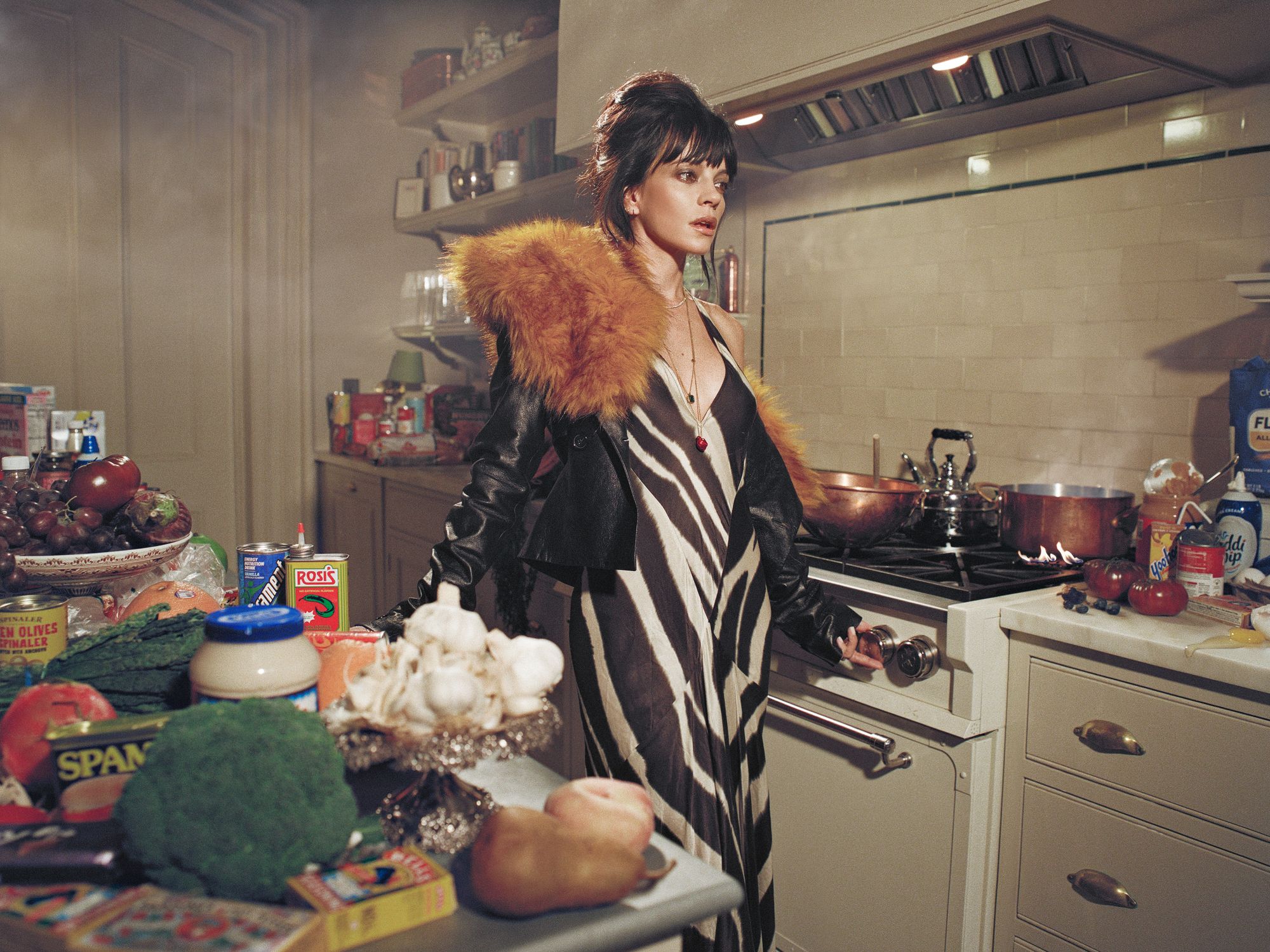One track into West End Girl, Lily Allen’s new tour de force of a divorcealbum, and I’m already hooked. Three tracks in, I’m messaging with several friends about it simultaneously, liveblogging my every thought and reaction to each searing lyric. Five tracks in, my jaw is on the floor and may never recover its former position. Who the f*** is Madeline indeed?!
Any album spilling this much supposed tea was always going to grab our attention (though Allen or, more likely, Allen’s lawyers, have made very clear that the singer’s marriage to and subsequent breakup with Stranger Things actor David Harbour merely serves as “inspiration” and that fact mingles with fiction throughout the 14 tracks). For whom among us can resist the lure of a celebrity scandal? Despite the fact that we will likely never know what is real and what is fantasy, Allen’s stream-of-consciousness storytelling on West End Girl feels as though we’re reading the messiest bits of someone else’s diary, complete with West Village p***y palaces and the now infamous Duane Reade bag stuffed full of sex toys, butt plugs and lube.
But by my sixth (or is it seventh?) listen, I finally realise that the reason this album has grabbed me by the throat and refused to let go is far more complex than a love of trashy gossip. It’s not even indicative of a morbid fascination with pain, that ghoulish bit of human nature that causes us to slow down and gawp when driving past a car accident. No, the real reason I couldn’t stop listening, aside from Allen’s winning combination of achingly raw vulnerability and well-crafted songwriting, was the fact that she has unapologetically and comprehensively broken a break-up taboo I hadn’t even realised existed.

For as long as I can remember, I have somehow absorbed one crucial idea about break-ups: if you’re the woman in a heterosexual relationship, you must hang onto your dignity at all costs. Whatever the circumstances, you should handle heartbreak “gracefully”, remaining as demure as a royal dignitary throughout. That’s the way you win, you see – by showing the man in question how incredibly poised and, crucially, un-mad you are. You can be sad, of course – a beautiful, tragic figure, gently weeping without ever tipping over into ugly crying – but never, ever angry. Because there’s nothing more unattractive than an angry woman, is there? And the whole point is to be so reasonable that he forever wonders whether he mightn’t have made the biggest mistake of his life in letting you go. Call it weaponised niceness, if you like.
Looking back, I think I’ve done this with pretty much every relationship I’ve ever had, ranging from those that constituted a handful of dates to the ones that lasted years. When a guy I’d had an intense holiday romance with, which continued for months afterwards, told me he’d “never been looking for a relationship in the first place”,I said it was fine (it wasn’t). When an older man I’d worked for aggressively love-bombed me, won me over, then promptly stopped answering my calls the minute things got serious, I said I understood (I didn’t). I’d never once experienced the catharsis of telling someone who’d wronged me that I was, in no uncertain terms, livid. I’d never exposed the writhing mass of vengeful snakes that constituted my insides after someone did me dirty. Heck, I’d never even yelled the word “Bastard!” dramatically in a bar, let alone chucked a drink on someone. At the time, protecting my image as some sort of paragon of womanly virtue seemed more important. But why, I wonder?
Popular culture has a lot to answer for. The very fact that the term “bunny boiler” made its way firmly into common parlance after the 1987 thriller Fatal Attraction shows just how powerful and pervasive the paranoia around the “angry woman” archetype is. No one wanted to be labelled that kindof girl: unhinged, insane, hysterical. It’s astonishing how many men I’ve heard refer to their ex as “crazy” – terminology you will rarely hear issuing from a woman’s mouth under the same circumstances. Well-meaning women, meanwhile, will still compliment female peers on how well they’ve “handled” themselves during a relationship breakdown – which usually equates to keeping a lid on the boiling vat of rage inside.
I’d never exposed the writhing mass of vengeful snakes that constituted my insides after someone did me dirty
But in her new album, Allen has point blank refused to play that game anymore. She is devastated, confused, and, yes, mad as hell – and she will not pretend otherwise to make herself seem more palatable or the world feel more comfortable. She may have started off down that well-trodden path, singing on “Let You W/In”: “I’m protecting you from your secrets/Don’t tell the children, the truth would be brutal/Your reputation’s unstained.” But this particular scorned woman will be quiet no more. She drips with disdain and fury across countless blistering lyrics, eviscerating her unnamed tormenter with lines like “You’re so f***ing broken” and “What a sad, sad man/It’s giving 4chan Stan.”
Listening as a woman who has never let a man see her true wrath lest it make her look unattractive, I felt set free by those songs. They give permission to unleash the wild, ugly parts of ourselves in a world that has forced us to stifle them. We don’t always have to be nice. We don’t always have to be pretty. We don’t always have to be, ugh, dignified.
For the longest time, we’ve been fed the line that living well is the best revenge. But sometimes maybe the best revenge is, well, revenge.



0 Comments